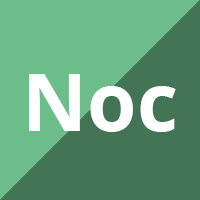
Prognostic value of test(s) for O6-methylguanine–DNA methyltransferase (MGMT) promoter methylation for predicting overall survival in people with glioblastoma treated with temozolomide
Abstract Background Glioblastoma is an aggressive form of brain cancer. Approximately five in 100 people with glioblastoma survive for five years past diagnosis. Glioblastomas that have a particular modification to their DNA (called methylation) in a particular region (the O6‐methylguanine–DNA methyltransferase (MGMT) promoter) respond better to treatment with chemotherapy using a drug called temozolomide. Objectives […]

Intraoperative imaging technology to maximise extent of resection for glioma: a network meta-analysis
Abstract Background Multiple studies have identified the prognostic relevance of extent of resection in the management of glioma. Different intraoperative technologies have emerged in recent years with unknown comparative efficacy in optimising extent of resection. One previous Cochrane Review provided low‐ to very low‐certainty evidence in single trial analyses and synthesis of results was not […]

Treatment options for progression or recurrence of glioblastoma: a network meta-analysis
Abstract Background Glioblastoma (GBM) is a highly malignant brain tumour that almost inevitably progresses or recurs after first line standard of care. There is no consensus regarding the best treatment/s to offer people upon disease progression or recurrence. For the purposes of this review, progression and recurrence are considered as one entity. Objectives To evaluate […]

Interventions to reduce the time to diagnosis of brain tumours
Abstract Background Brain tumours are recognised as one of the most difficult cancers to diagnose because presenting symptoms, such as headache, cognitive symptoms, and seizures, may be more commonly attributable to other, more benign conditions. Interventions to reduce the time to diagnosis of brain tumours include national awareness initiatives, expedited pathways, and protocols to diagnose brain tumours, […]

Interventions to reduce the time to diagnosis of brain tumours
Abstract Background Brain tumours are recognised as one of the most difficult cancers to diagnose because presenting symptoms, such as headache, cognitive symptoms, and seizures, may be more commonly attributable to other, more benign conditions. Interventions to reduce the time to diagnosis of brain tumours include national awareness initiatives, expedited pathways, and protocols to diagnose brain tumours, […]

Pharmacological treatment of depression in people with a primary brain tumour
Abstract Background This is the second updated version of the Cochrane Review published in Issue 3, 2010 and first updated in Issue 5, 2013. People with a primary brain tumour often experience depression, for which drug treatment may be prescribed. However, they are also at high risk of epileptic seizures, cognitive impairment, and fatigue, all […]

External beam radiation dose escalation for high grade glioma
Abstract Background This is an updated version of the original Cochrane Review published in Issue 8, 2016. High grade glioma (HGG) is a rapidly growing brain tumour in the supporting cells of the nervous system, with several subtypes such as glioblastoma (grade IV astrocytoma), anaplastic (grade III) astrocytoma and anaplastic (grade III) oligodendroglioma. Studies have […]

Anti-epidermal growth factor receptor therapy for glioblastoma in adults
Abstract Background Glioblastoma is an uncommon but highly aggressive type of brain tumour. Significant gains have been achieved in the molecular understanding and the pathogenesis of glioblastomas, however clinical improvements are difficult to obtain for many reasons. The current standard of care involves maximal safe surgical resection followed by chemoradiation and then adjuvant chemotherapy European […]

Treatment of newly diagnosed glioblastoma in the elderly: a network meta-analysis
Abstract Background A glioblastoma is a fatal type of brain tumour for which the standard of care is maximum surgical resection followed by chemoradiotherapy, when possible. Age is an important consideration in this disease, as older age is associated with shorter survival and a higher risk of treatment‐related toxicity. Objectives To determine the most […]

Early versus delayed postoperative radiotherapy for treatment of low-grade gliomas
Abstract Background This is an update of the review originally published in 2011 and first updated in 2015. In most people with low‐grade gliomas (LGG), the primary treatment regimen remains a combination of surgery followed by postoperative radiotherapy. However, the optimal timing of radiotherapy is controversial. It is unclear whether to use radiotherapy in the […]

